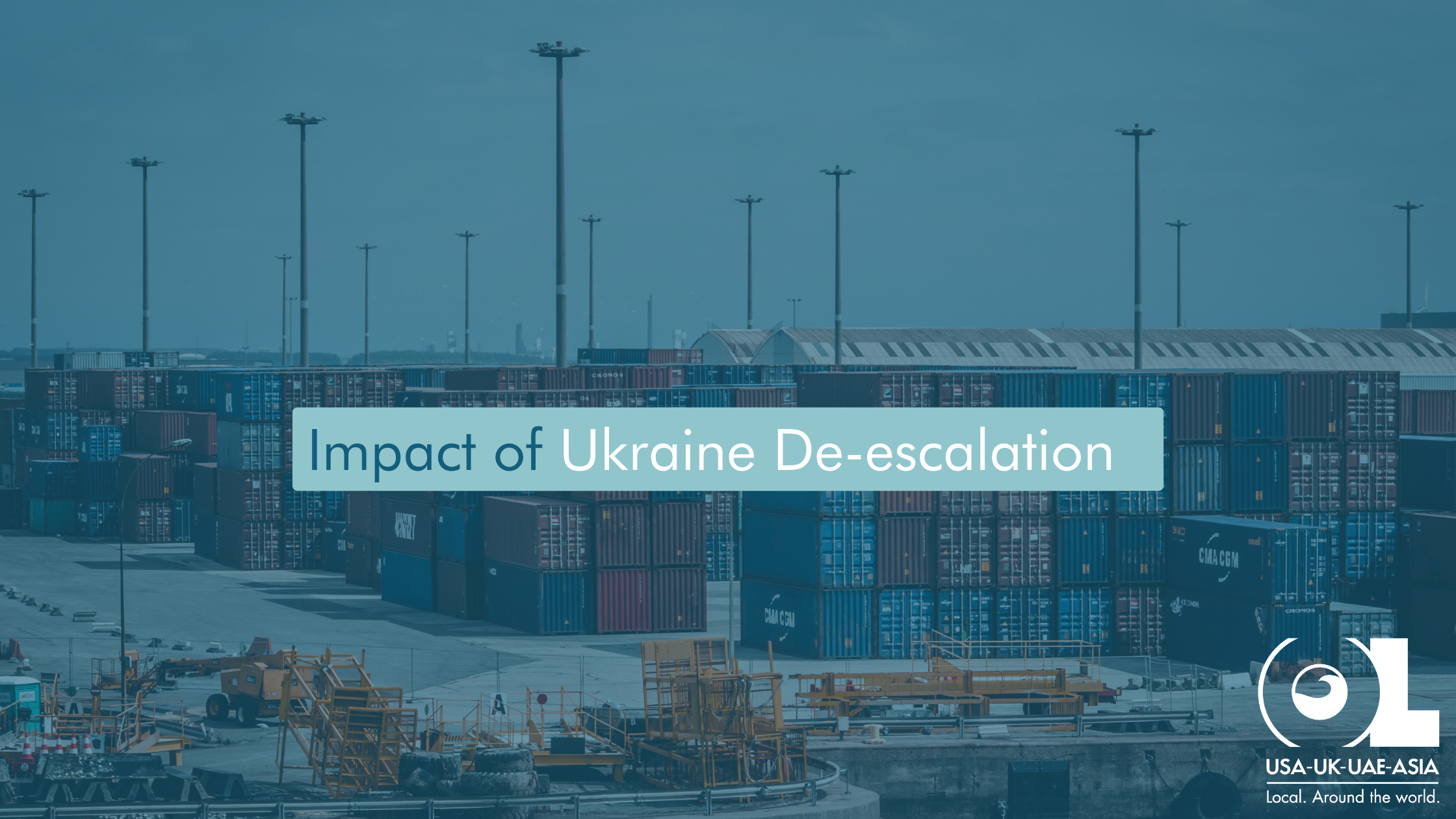Global Logistics: Navigating Opportunities After Conflict Resolution
In the complex arena of international geopolitics, the ongoing conflict in Ukraine stands as a focal point with far-reaching implications. As discussions around potential resolutions gain momentum, there arises a need to objectively examine the potential impacts on various facets of global affairs. One such crucial aspect is the intricate web of trade agreements that binds nations together economically. In this exploration, we aim to neutrally analyze how the resolution of the Ukraine conflict could introduce shifts in existing trade agreements, potentially leading to the easing of trade restrictions and the exploration of new markets.
Potential Impact on Trade Agreements:
Examining Diplomatic Shifts: The resolution of the Ukraine conflict holds the potential to reshape the geopolitical landscape, triggering diplomatic shifts among nations. As international tensions ease, the atmosphere for negotiation and collaboration improves. This, in turn, can have a cascading effect on existing trade agreements. Countries previously restrained by political considerations may find common ground for more amicable economic cooperation. The diplomatic corridors, once clouded by uncertainty, may open up avenues for dialogue and renegotiation.
Easing Trade Restrictions: A key consequence of diplomatic resolutions could be the easing of trade restrictions that have been imposed due to geopolitical tensions. Tariffs, embargoes, and other barriers that hinder the free flow of goods may see a gradual relaxation. This easing of restrictions can unlock previously constrained trade routes, allowing for a more fluid movement of goods across borders. It not only simplifies logistical operations but also holds the potential to reduce costs, making international trade more accessible and economically viable for businesses.
Opening Up New Markets: The resolution of the Ukraine conflict may act as a catalyst for the opening up of new markets. Countries involved in diplomatic resolutions may seek to diversify their trade partnerships and explore fresh economic avenues. For 3PL providers, this implies a broader canvas on which to operate. New markets represent untapped potential for logistics services, offering opportunities for expansion and growth. The diversification of trade alliances could lead to the emergence of novel supply chain routes, prompting 3PL providers to adapt their strategies to accommodate these evolving dynamics.
Enhancing Global Collaboration: Beyond the direct impact on individual trade agreements, the resolution of the Ukraine conflict has the potential to foster a spirit of collaboration on a global scale. Nations, recognizing the interdependence of their economies, may engage in collaborative efforts to strengthen international trade norms. This collaborative approach could manifest in the development of more standardized trade practices and regulations, providing a more predictable and stable environment for 3PL providers to operate within.
Collaborations Among Nations:
Fostering Diplomatic Resolutions: Diplomatic resolutions have the potential to serve as catalysts for enhanced collaboration among nations. As tensions de-escalate, diplomatic channels open up, providing an avenue for dialogue and mutual understanding. This newfound spirit of cooperation may extend beyond immediate conflict resolution, fostering broader diplomatic ties. Closer collaborations among nations become plausible, driven by shared economic interests and the recognition of the interconnected nature of the global economy. In this context, the prospect of strengthened diplomatic relations holds the promise of creating a more stable and conducive environment for international trade.
The Role of 3PL Providers in Facilitating Trade Relationships: Within the realm of evolving diplomatic collaborations, 3PL providers emerge as pivotal facilitators of smoother trade relationships. As nations seek to strengthen their economic ties, efficient logistics and supply chain management become imperative. 3PL providers, equipped with expertise in navigating complex international trade networks, play a crucial role in ensuring the seamless flow of goods. Their ability to offer tailored logistics solutions aligns with the diverse needs of collaborating nations, promoting efficiency, reliability, and cost-effectiveness in the movement of goods across borders.
Enhancing International Supply Chain Networks: The collaborative efforts spurred by diplomatic resolutions extend to the enhancement of international supply chain networks. 3PL providers, with their intricate understanding of supply chain dynamics, contribute to the optimization of these networks. By leveraging their global infrastructure and expertise, 3PL providers assist nations in developing resilient and agile supply chains. This collaborative approach aims to enhance the overall efficiency of international trade, minimizing bottlenecks and disruptions. As nations forge closer ties, 3PL providers play a proactive role in aligning supply chain strategies with the evolving landscape of diplomatic collaborations.
Promoting Economic Interdependence: Closer collaborations among nations foster economic interdependence, where each country’s prosperity becomes intertwined with the success of its trading partners. In this context, 3PL providers act as enablers, ensuring that the benefits of economic interdependence are realized through streamlined logistics and supply chain operations. The resulting synergy contributes to the creation of a more robust and interconnected global trade ecosystem.
In essence, as diplomatic resolutions pave the way for closer collaborations among nations, 3PL providers assume a central role in facilitating smoother trade relationships and enhancing international supply chain networks. Their expertise becomes instrumental in navigating the complexities of evolving diplomatic ties, ultimately contributing to the resilience and efficiency of the global trade landscape.



